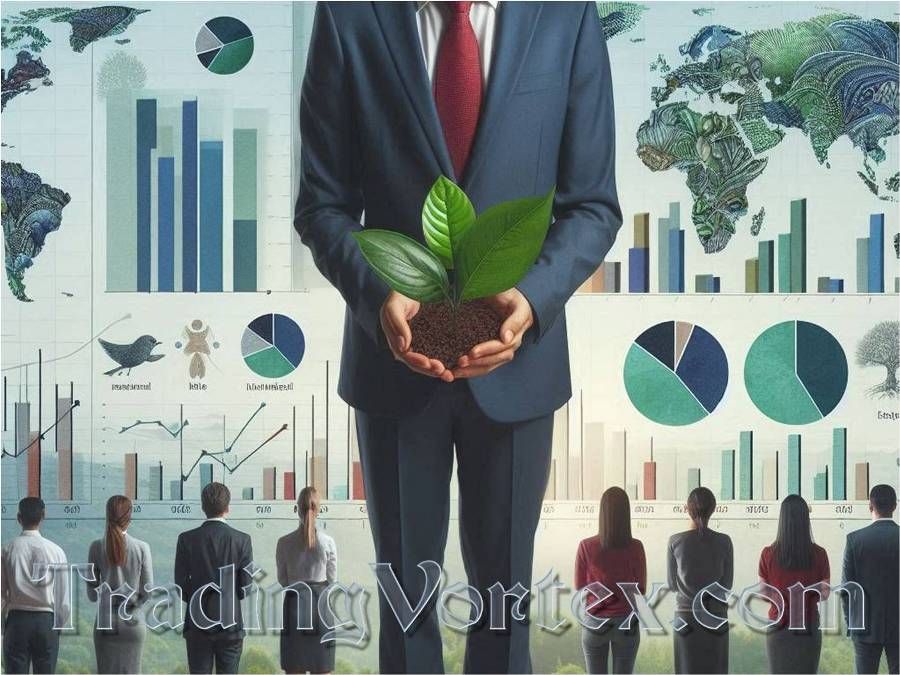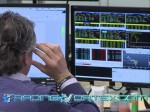Table Of Contents:
- Introduction to Ethical Investing:
- Understanding ESG Criteria:
- Benefits of Ethical Investing:
- Strategies for Ethical Investing:
- ESG Integration in Investment Portfolios:
- Evaluating Ethical Investment Options:
- Measuring the Impact of Ethical Investments:
- Challenges in Ethical Investing:
- Future Trends in Ethical Investing:
- Getting Started with Ethical Investing:
- Conclusion – Embracing Ethical Investing: Shaping Tomorrow, Today.
- Frequently Asked Questions (FAQs):
Introduction to Ethical Investing:
What is Ethical Investing?
Alright, folks, let's dive into something that's been shaking up the investing world in the best way possible: ethical investing. Picture this: you're at a dinner party, and the conversation steers toward investments. Instead of the usual stock tips and market predictions, someone brings up the idea of investing in companies that not only turn a profit but also make the world a better place. That’s ethical investing in a nutshell. It's about putting your money where your values are, choosing investments that align with principles like environmental sustainability, social justice, and good governance.
The Rise of Ethical Investing in the Modern Market:
Now, let’s talk about why ethical investing has gone from being a niche concept to a mainstream phenomenon. Imagine you're back at that dinner party a decade ago; ethical investing might have been a passing comment, something only a handful of people were passionate about. Fast forward to today, and it's a major talking point in financial circles worldwide.
One of the main reasons for this shift is the growing awareness of global issues like climate change, social inequality, and corporate accountability. People are waking up to the fact that their investments can have a real impact on these issues. It's no longer just about making money; it's about making money in a way that doesn’t compromise your values or the planet’s future.
Let me share a quick story. A couple of years ago, I had a client who was passionate about renewable energy. She wanted her portfolio to reflect that passion, so we focused on companies leading the charge in solar and wind power. Not only did her investments perform well financially, but she also felt a deep sense of satisfaction knowing her money was supporting a cause she cared about. This kind of personal connection to one’s investments is a powerful driver behind the rise of ethical investing.
Another factor fueling this rise is the increasing availability of information. Thanks to the internet and social media, it's easier than ever to research companies and understand their practices. You don’t need a Ph.D. in finance to figure out which companies are making a positive impact. There are plenty of resources, like ESG (Environmental, Social, Governance) ratings and sustainable investment funds, that make it simpler to align your investments with your values.
Finally, let’s not forget the role of the next generation. Millennials and Gen Z investors are particularly keen on ethical investing. They’re digital natives who grew up with a strong sense of social and environmental responsibility. They’re not just investing for their own future; they’re investing for the future of the planet. This shift in investor mindset is pushing companies to adopt more ethical practices to attract and retain these values-driven investors.
In conclusion, ethical investing is not just a trend; it’s a transformation in the way we think about investing. It's about making informed, intentional choices that reflect not only your financial goals but also your personal values. So, whether you’re new to investing or a seasoned pro, ethical investing offers a way to align your portfolio with the causes you care about, making your money work for both you and the world.
Understanding ESG Criteria:
Defining ESG (Environmental, Social, Governance):
Alright, let's break down the three letters that are driving a revolution in the investment world: ESG. You’ve probably seen this acronym splashed across financial news and investment brochures, but what does it really stand for? ESG represents Environmental, Social, and Governance criteria, and it's the framework that guides ethical investing.
- Environmental: This is all about how a company impacts the planet. Are they reducing their carbon footprint? Investing in renewable energy? Managing waste effectively? If you care about the environment, this is where you’ll focus your attention.
- Social: This covers a company’s relationships with its employees, suppliers, customers, and the communities where it operates. Think of factors like labor practices, employee benefits, community engagement, and customer satisfaction. A company scoring high on social criteria is likely treating people well and contributing positively to society.
- Governance: This one might sound a bit dry, but it’s crucial. Governance involves the internal systems of practices, controls, and procedures a company adopts to govern itself, make effective decisions, comply with the law, and meet the needs of external stakeholders. It includes everything from executive pay to board diversity to shareholder rights. Strong governance means a company is run responsibly and transparently.
Importance of ESG in Ethical Investing:
So, why should you care about ESG criteria when investing? Well, it’s about more than just feeling good about where your money goes (though that’s a big part of it). Companies that score well on ESG criteria often outperform their less conscientious peers in the long run. It's a win-win situation: you get to support businesses that are doing the right thing while potentially reaping higher returns.
Imagine you’re investing in two companies:
- One is heavily polluting, embroiled in labor disputes, and has a shady board of directors.
- The other is pioneering clean energy, has a happy workforce, and operates with full transparency.
Which one sounds like a safer bet? Exactly. Companies with strong ESG practices are less likely to face scandals, fines, and boycotts, making them more stable and less risky investments.
And here's a personal tidbit: I used to be skeptical about ESG investing. I thought it was all fluff, with no real impact on performance. But then, after diving into some research and tracking ESG portfolios, I saw the light. These companies weren’t just surviving; they were thriving. It was like finding out that eating healthy not only keeps you fit but also makes you feel great.
How ESG Criteria are Assessed?
Now, let’s get into the nitty-gritty: how exactly are these ESG criteria assessed? It’s not just a gut feeling or a thumbs-up/thumbs-down scenario. There are rigorous methodologies and ratings involved, provided by various organizations like MSCI, Sustainalytics, and Bloomberg.
These agencies evaluate companies on a broad range of metrics:
- For the environmental aspect, they might look at energy usage, waste management, pollution control, and resource conservation.
- For the social dimension, they’ll assess labor practices, community relations, customer satisfaction, and human rights issues.
- And for governance, they’ll examine the structure and independence of the board, executive compensation, audit practices, and shareholder rights.
One interesting thing I’ve learned from working with ESG data is how these criteria can highlight potential red flags that might not show up in traditional financial analysis. For instance, a company might be profitable now but if it’s ignoring its environmental responsibilities, it could face massive cleanup costs or regulatory fines down the line. Similarly, poor labor practices might lead to strikes or high turnover, disrupting operations and hurting profits.
In summary, understanding ESG criteria isn’t just for the eco-warriors or social activists among us. It’s a smart investment strategy that looks at the full picture of a company’s operations and their long-term viability. So next time you're picking stocks or funds, don’t just ask, “How much money will this make me?” Also ask, “What kind of world will this investment help build?”
Benefits of Ethical Investing:
Financial Performance and Ethical Investing:
Let's get straight to it: one of the biggest myths out there is that ethical investing means sacrificing returns. I used to hear this all the time, and frankly, I believed it at first. But then I started digging into the numbers, and let me tell you, the data paints a different picture.
Long-Term Sustainability and Profitability:
When you invest ethically, you’re not just looking at the next quarter – you’re looking at the next decade. Ethical investing promotes long-term thinking, focusing on sustainability and resilience. Companies that prioritize ESG criteria are often better equipped to handle future challenges, be it climate change, social upheavals, or shifts in consumer behavior.
Take renewable energy companies, for example. As the world shifts away from fossil fuels, these businesses are poised to benefit massively. By investing in them now, you’re positioning yourself for future gains while supporting the transition to a greener economy. It’s a forward-thinking approach that considers the long-term impacts of today's decisions.
Here’s a little anecdote: a few years back, I advised a client to invest in a solar energy company. At the time, it seemed a bit risky – solar wasn’t as mainstream as it is today. Fast forward to now, and that investment has paid off handsomely. Not only has the company grown, but it’s also contributing to a more sustainable future. It's a perfect example of how ethical investing can be both profitable and forward-looking.
Aligning Investments with Personal Values:
This is where ethical investing really shines for me. There’s something deeply satisfying about knowing that your money is going toward companies and causes you believe in. It’s like voting with your dollars. Every investment is a statement of your values and priorities.
I’ll never forget a conversation I had with a friend who works in finance. She had recently overhauled her portfolio to focus on ethical investments. She told me, “For the first time, I feel like my money is doing more than just making money – it’s making a difference.” That stuck with me. When you align your investments with your values, you’re not just chasing returns; you’re supporting the kind of world you want to live in.
For example, if you care deeply about social justice, you can choose to invest in companies that promote fair labor practices and diversity. If environmental conservation is your passion, there are plenty of funds focused on green technologies and sustainable business practices. The options are vast and growing every day.
In conclusion, the benefits of ethical investing go beyond financial gains. It’s about making smart, sustainable choices that align with your values and support a better future. Whether you’re driven by the potential for solid returns, long-term growth, or the desire to make a positive impact, ethical investing offers a path that’s as rewarding for your wallet as it is for your conscience. So, why not take the plunge? Your future self – and the planet – will thank you.
Strategies for Ethical Investing:
Active vs. Passive Ethical Investing:
Alright, let’s get into the nitty-gritty of how to actually implement ethical investing strategies in your portfolio. First up: active vs. passive investing. Think of this as the age-old debate of doing things yourself versus letting someone else handle it for you.
For instance, I had a buddy who’s an active investor. He’s always reading reports, attending shareholder meetings, and even engaging with company management to push for better practices. It’s a full-time job, but he loves it because he feels directly connected to the positive changes his investments are supporting.
For instance, I have a friend who’s passionate about ethical investing but doesn’t have the time to manage her investments actively. She opts for passive ESG ETFs, which offer broad market exposure with the peace of mind that her money is supporting responsible companies. It’s a great way to be invested ethically without needing to dive deep into the details of each individual company.
Impact Investing – Making a Difference with Your Money:
Next, let's talk about impact investing. This strategy is all about making investments that generate measurable social and environmental benefits alongside financial returns. It’s where your money goes to work not just to make more money, but to create tangible positive outcomes.
Impact investing is often focused on specific issues, like clean energy, affordable housing, or education. It’s about targeting your investments to areas where they can make the most difference.
I once met an investor at a conference who was passionate about clean water access. He invested in a series of startups and funds focused on water purification technologies. Not only did he see impressive financial returns, but he also felt a profound sense of accomplishment knowing he was contributing to solving a critical global issue.
What makes impact investing particularly exciting is the double whammy of returns: you get the financial upside and the social or environmental impact. It’s a strategy that speaks to those of us who want our investments to reflect our desire to leave the world better than we found it.
Community Investing – Supporting Local Initiatives:
Lastly, let’s explore community investing. This strategy is about putting your money to work in your own backyard, supporting local businesses and initiatives that directly benefit your community. It’s about fostering economic development and social change right where you live.
In conclusion, there are numerous strategies to align your portfolio with your values through ethical investing. Whether you prefer the hands-on approach of active investing, the broader strokes of passive funds, the targeted impact of specific issue-based investments, or the community-focused local initiatives, there’s a strategy that can fit your style and goals. Ethical investing isn’t just a trend; it’s a meaningful way to combine financial success with positive change, making your money work for both you and the greater good.
ESG Integration in Investment Portfolios:
How to Incorporate ESG Criteria into Your Portfolio?
Alright, let’s roll up our sleeves and talk about how you can actually get ESG criteria into your investment portfolio. Incorporating ESG (Environmental, Social, Governance) factors is like adding a turbocharger to your investment strategy – not only are you aiming for financial returns, but you're also ensuring your money is making a positive impact.
- Step 1 – Define Your Values and Goals: First things first, figure out what matters most to you. Are you passionate about environmental sustainability? Social justice? Corporate transparency? Knowing your priorities will help guide your investment choices. Think of this as setting your investment GPS – once you know where you want to go, it’s easier to find the right path.
- Step 2 – Research and Select ESG Investments: Next, start researching companies and funds that align with your values. Look for ESG ratings and reports from reputable sources like MSCI, Sustainalytics, and Bloomberg. These ratings give you insight into how well a company performs on various ESG criteria.
- When I first started integrating ESG into my own portfolio, I spent hours combing through these reports. It was eye-opening to see the detailed breakdowns of each company’s practices. It’s not just about picking the ones with the highest scores but understanding why they score well and if those reasons align with your values.
- Step 3 – Diversify Your ESG Investments: Don’t put all your eggs in one basket. Diversification is key in any investment strategy, and it’s no different with ESG investing. Mix and match different sectors and asset classes to spread your risk and capture opportunities across the board. You might invest in a mix of green bonds, socially responsible ETFs, and stocks of companies with strong governance practices.
Tools and Resources for ESG Integration:
Now, let’s talk about the tools and resources that can make ESG integration a breeze. We live in a golden age of information, and there are plenty of resources to help you on this journey.
- ESG Rating Agencies: As mentioned earlier, agencies like MSCI, Sustainalytics, and Bloomberg provide comprehensive ESG ratings and reports. These are invaluable for assessing potential investments. Think of them as your go-to guides in the vast world of ESG investing.
- Sustainable Investment Platforms: There are online platforms specifically designed for ethical investors. Websites like Moneymade and OpenInvest allow you to build and manage a portfolio based on ESG criteria. They offer a user-friendly interface and detailed analytics to keep you informed about how your investments are performing on ESG fronts.
- Financial Advisors Specializing in ESG: If you’re looking for a more hands-off approach, consider working with a financial advisor who specializes in ESG investing. They can help tailor a strategy that fits your values and financial goals. I remember one of my clients who felt overwhelmed by the sheer amount of information available. Partnering with an ESG-savvy advisor gave her peace of mind and a clear plan to follow.
- Educational Resources: Books, webinars, and online courses can deepen your understanding of ESG investing.
Case Studies of Successful ESG Integration:
Let’s look at some real-world examples of successful ESG integration. These case studies can provide inspiration and practical insights for your own investment journey.
Case Study 1 – The Tech Giant:
Case Study 2 – The Boutique Investment Firm:
Case Study 3 – The Millennial Investor:
In conclusion, integrating ESG criteria into your investment portfolio isn’t just a trend; it’s a meaningful way to align your financial goals with your values. By defining what matters to you, utilizing the right tools and resources, and learning from successful case studies, you can create a portfolio that’s both profitable and purposeful. So, dive in and let your investments reflect the change you want to see in the world.
Evaluating Ethical Investment Options:
Alright, let's dive into the fun part: evaluating your ethical investment options. Think of this as picking the best ingredients for a gourmet meal. Each type of investment offers its own flavor and benefits, so let's explore what’s on the menu.
Ethical Mutual Funds and ETFs:
First up, we have ethical mutual funds and ETFs (exchange-traded funds). These are like pre-packaged meals created by top chefs, combining a variety of stocks and bonds that meet specific ESG criteria.
- Ethical Mutual Funds are actively managed, meaning a team of experts is constantly monitoring and adjusting the portfolio to ensure it meets its ethical standards and performance goals. This hands-on approach can be great if you want a more curated experience. However, it often comes with higher fees compared to passive options.
- Ethical ETFs, on the other hand, are typically passively managed. They track an index that includes companies meeting certain ESG standards. This makes them more cost-effective and a good choice for investors who prefer a more hands-off approach. Plus, they offer the flexibility of trading like a stock, so you can buy and sell shares throughout the trading day.
A few years back, I had a client named Sarah who was new to ethical investing. She loved the idea but didn't have the time to manage individual stocks. I recommended she start with an ethical ETF. She went with one focused on renewable energy and has been thrilled with both the performance and the peace of mind knowing her investments are aligned with her values.
Green Bonds and Sustainable Securities:
Next, let’s talk about green bonds and sustainable securities. These are like the farm-to-table ingredients in our gourmet meal, sourced directly from initiatives designed to benefit the environment.
- Green Bonds are issued by companies, municipalities, or governments to fund projects that have positive environmental benefits, such as renewable energy, clean transportation, or sustainable agriculture. They offer a fixed income and are a great way to support eco-friendly projects while earning a steady return.
- Sustainable Securities extend beyond just green bonds and include social bonds and sustainability-linked bonds. Social bonds finance projects with positive social outcomes, like affordable housing or education. Sustainability-linked bonds are a bit more flexible, as their financial and/or structural characteristics can vary depending on whether the issuer achieves predefined sustainability objectives.
I remember one time at a conference, I met an investor who was all in on green bonds. He said it felt like his money was a force for good, directly funding projects that would make the world a better place for his grandkids. And he wasn’t sacrificing returns – his green bond portfolio was performing just as well, if not better, than his traditional fixed-income investments.
Socially Responsible Stocks:
Lastly, we have socially responsible stocks, the à la carte option of our meal. This is where you can really tailor your investments to your personal values.
When evaluating these stocks, look for companies with strong ESG ratings and transparent reporting practices. Tools like the Bloomberg Terminal or platforms like Yahoo Finance offer detailed ESG scores that can help guide your decisions.
A personal anecdote: I once advised a young investor named Tom, who was passionate about technology and social justice. He decided to invest in a tech company known for its innovative products and commitment to diversity and inclusion. Over the years, not only has he seen impressive financial returns, but he also takes pride in supporting a company that reflects his values.
In conclusion, evaluating ethical investment options is about finding the right balance between your financial goals and your ethical standards. Whether you choose mutual funds, ETFs, bonds, or individual stocks, there are plenty of ways to make your portfolio reflect your values. It’s like crafting the perfect meal –each ingredient should complement the others, creating a satisfying and harmonious whole. So go ahead, explore these options, and create a portfolio that’s not just profitable but also meaningful.
Measuring the Impact of Ethical Investments:
Alright, let’s get into the heart of what makes ethical investing so rewarding: measuring the impact. It’s not just about the dollars and cents – it's about seeing real-world changes that your investments help bring about. Whether it’s cleaner air, better working conditions, or stronger communities, the impact is what makes ethical investing truly meaningful.
Key Metrics for Assessing Impact:
When it comes to assessing the impact of your ethical investments, it’s important to look beyond traditional financial metrics. Here are some key metrics that can help you gauge how well your investments are aligning with your values and making a difference:
- Environmental Impact Metrics: For investments focused on sustainability, look at metrics such as carbon footprint reduction, energy efficiency improvements, water usage reduction, and waste management. Companies often report these metrics in their sustainability reports, giving you a clear picture of their environmental impact.
- Social Impact Metrics: For those invested in social responsibility, metrics such as employee diversity, community engagement, fair labor practices, and product safety are crucial. For instance, a company might report on the number of local jobs created, improvements in worker conditions, or contributions to local education and healthcare.
- Governance Metrics: Good governance is a cornerstone of sustainable investing. Look for metrics related to board diversity, executive compensation tied to ESG performance, anti-corruption policies, and shareholder rights. Companies with strong governance practices tend to be more resilient and ethically sound.
When I first started focusing on ethical investments, I found myself overwhelmed by the sheer number of metrics. My advice? Start with what matters most to you. If climate change is your primary concern, focus on environmental metrics. If social justice is your passion, dive into the social metrics. Tailor your approach to what resonates with you.
Reporting Standards and Transparency:
Transparency is key when evaluating the impact of ethical investments. Luckily, there are several reporting standards that help ensure you get accurate and comparable information:
- Global Reporting Initiative (GRI): GRI standards provide a comprehensive set of metrics that companies use to report their ESG performance. They cover a wide range of issues, from environmental impact to labor practices and human rights.
- Sustainability Accounting Standards Board (SASB): SASB focuses on financial materiality, providing industry-specific standards that help investors understand how sustainability issues impact financial performance. This is particularly useful for those looking to integrate ESG factors into financial analysis.
- Task Force on Climate-related Financial Disclosures (TCFD): TCFD recommendations are designed to improve and increase reporting of climate-related financial information. Companies that follow TCFD guidelines provide insights into how they manage risks and opportunities related to climate change.
- Impact Reporting and Investment Standards (IRIS): Managed by the Global Impact Investing Network (GIIN), IRIS provides a catalog of standardized metrics for impact investors to measure and manage social, environmental, and financial performance.
A few years back, I was helping a friend, Emma, who was keen on ethical investing but felt lost with all the different reporting standards. We sat down and went through a few annual reports together, focusing on the GRI and SASB sections. By the end, she felt much more confident about evaluating the impact of her investments and knew exactly where to look for the information she needed.
Examples of High-Impact Ethical Investments:
To bring this all to life, let’s look at some real-world examples of high-impact ethical investments. These stories show how your money can make a tangible difference.
Example 1 – Renewable Energy Projects:
Example 2 – Social Impact Bonds:
Example 3 – Community Development Financial Institutions (CDFIs):
In conclusion, measuring the impact of ethical investments goes beyond financial returns. It’s about seeing the positive changes your money is fostering in the world. By focusing on key metrics, leveraging transparent reporting standards, and learning from real-world examples, you can ensure your investments are making a difference. Remember, it’s not just about growing your wealth – it’s about growing your impact. So, dig into those reports, ask the tough questions, and take pride in the fact that your investments are driving meaningful change.
Challenges in Ethical Investing:
Alright, let's get real for a moment. Ethical investing is fantastic, but it’s not without its hurdles. Whether you’re a seasoned pro or just starting out, you’re bound to face some challenges along the way. Let’s break down these obstacles so you’re better prepared to navigate them.
Common Misconceptions about Ethical Investing:
First off, let’s clear up some common misconceptions about ethical investing. It's not all sunshine and rainbows, and there are a few myths that can trip you up if you're not careful.
One of the biggest misconceptions is that investing ethically means you’ll earn lower returns. This is simply not true. Numerous studies have shown that companies with strong ESG practices often perform just as well, if not better, than their non-ESG counterparts. However, it's essential to understand that like all investments, ethical investments come with their own risks and rewards.
Another myth is that ethical investing is only accessible to the wealthy. While it's true that some ESG-focused funds may have higher minimum investments, there are plenty of options available for investors of all sizes. From micro-investing apps to low-cost ETFs, there are ways to align your investments with your values without needing a huge capital outlay.
Yes, ethical investing can seem daunting at first, with all the ESG metrics and different standards. But trust me, once you get the hang of it, it’s no more complicated than traditional investing. Plenty of resources and tools can help simplify the process, making it easier to make informed decisions.
Navigating Greenwashing and False Claims:
Now, let’s talk about greenwashing. Imagine you’re shopping for organic produce, and you discover that the “organic” label on your apples is just a marketing gimmick. Frustrating, right? The same thing can happen with ethical investments.
Greenwashing is when companies or funds present themselves as more environmentally friendly or socially responsible than they really are. It’s a big problem because it can mislead investors into thinking their money is making a positive impact when it’s not.
To avoid falling for greenwashing, do your homework. Look beyond the glossy marketing materials and dig into the details. Check if the company or fund has third-party certifications from reputable organizations like the Global Reporting Initiative (GRI) or the Sustainability Accounting Standards Board (SASB). Also, scrutinize their ESG reports – if they’re vague or lack substance, that’s a red flag.
A friend of mine once invested in a “green” fund that promised to support renewable energy projects. After a deeper dive into their portfolio, he found out that a significant portion was still tied up in fossil fuels. He felt betrayed, but it was a valuable lesson in the importance of due diligence.
Balancing Ethical Considerations with Financial Goals:
Finally, let’s address the delicate balance between staying true to your values and achieving your financial goals. It can sometimes feel like walking a tightrope, but it’s definitely possible to find that sweet spot.
- Diversification is Key: One way to balance ethical considerations with financial goals is through diversification. Don’t put all your eggs in one basket. Spread your investments across different sectors and asset classes. This way, you can mitigate risk while still supporting a variety of ethical initiatives.
- Set Clear Priorities: Determine what’s most important to you and rank your ethical priorities. Is environmental sustainability your top concern? Or are you more focused on social justice issues? Having clear priorities will help guide your investment decisions and make it easier to stick to your values.
- Be Realistic and Flexible: While it’s important to have strong convictions, be realistic and flexible. Understand that no investment will be perfect. Some ethical investments might not tick every box on your ESG checklist, but they can still make a positive impact. It’s about finding a balance that you’re comfortable with.
- Regular Review and Adjustment: Lastly, regularly review your portfolio and be prepared to make adjustments. The world of ethical investing is dynamic, with new opportunities and challenges arising all the time. Stay informed and be willing to adapt your strategy as needed.
In conclusion, ethical investing comes with its fair share of challenges, from battling misconceptions to spotting greenwashing and balancing your values with financial goals. But with a bit of knowledge, vigilance, and flexibility, you can navigate these hurdles and build a portfolio that not only performs well but also aligns with your values. Remember, it’s a journey—one that’s as rewarding as it is impactful. So, gear up and enjoy the ride!
Future Trends in Ethical Investing:
Alright, let’s talk about the future of ethical investing. The world is changing rapidly, and so is the landscape of investing with a conscience. From groundbreaking innovations to the pivotal role of technology, there's a lot on the horizon that promises to make ethical investing even more impactful and accessible. So, buckle up and let’s dive into what the future holds!
Innovations in ESG and Ethical Investment Strategies:
The field of ethical investing is buzzing with innovation. New strategies and approaches are constantly being developed to enhance the impact and effectiveness of ESG investments.
- Thematic Investing: One trend that’s gaining traction is thematic investing. This involves targeting investments in specific themes such as clean energy, gender diversity, or sustainable agriculture. It allows investors to channel their money into areas they are most passionate about. For instance, water scarcity is emerging as a critical issue, and funds focused on water conservation technologies are becoming increasingly popular.
- ESG Integration in Alternative Assets: ESG criteria are also being integrated into alternative asset classes like private equity, real estate, and hedge funds. This is expanding the reach of ethical investing beyond traditional stocks and bonds. Imagine investing in a real estate fund that only develops eco-friendly buildings or a private equity fund that supports startups with strong social missions. These alternatives provide more opportunities for making a positive impact while diversifying your portfolio.
- Impact Measurement and Management: Another exciting innovation is in the realm of impact measurement and management (IMM). New frameworks and tools are being developed to more accurately measure the social and environmental impact of investments. This means investors can track the real-world outcomes of their investments with greater precision, making it easier to ensure their money is driving meaningful change.
The Role of Technology in Ethical Investing:
Technology is revolutionizing every aspect of our lives, and ethical investing is no exception. From AI to blockchain, technological advancements are making it easier and more efficient to invest ethically.
- Artificial Intelligence and Big Data: AI and big data are game-changers for ethical investing. They enable more sophisticated analysis of ESG data, helping investors identify trends and opportunities that might not be apparent through traditional analysis. For instance, AI can analyze vast amounts of data to identify companies that are truly committed to sustainability, rather than those merely engaging in greenwashing.
- Blockchain for Transparency: Blockchain technology promises to enhance transparency and accountability in ethical investing. By creating immutable records of ESG data, blockchain can ensure that the information provided by companies is accurate and trustworthy. This reduces the risk of greenwashing and allows investors to make more informed decisions. Imagine a future where you can trace the environmental impact of every dollar you invest, from renewable energy projects to social enterprises.
- Robo-Advisors with an Ethical Twist: Robo-advisors are making investing more accessible to everyone, and now, many are incorporating ESG criteria into their algorithms. This means you can get personalized, ethical investment advice without the high fees traditionally associated with financial advisors. It’s like having a personal investment coach who’s always looking out for the planet and society.
Predictions for the Future of Ethical Investing:
So, what does the future hold for ethical investing? Here are a few predictions that could shape the landscape in the coming years.
- Mainstream Adoption: Ethical investing is moving from the fringe to the mainstream. As awareness of social and environmental issues grows, more and more investors – both individual and institutional – are demanding ethical options. This shift is likely to accelerate, making ESG criteria a standard part of investment decisions rather than a niche consideration.
- Regulatory Changes: Governments and regulatory bodies around the world are starting to take ESG more seriously. Expect to see more regulations that require companies to disclose their ESG practices and impact. This will improve transparency and make it easier for investors to make informed decisions. Imagine a future where every annual report includes detailed, standardized ESG data – no more digging through vague sustainability claims!
- Increased Focus on Social Issues: While environmental concerns have dominated the ESG conversation, social issues are gaining prominence. Topics like racial equity, gender diversity, and community impact are becoming more important to investors. Future ethical investment strategies will likely place greater emphasis on these social factors, creating more balanced and comprehensive ESG portfolios.
- Enhanced Investor Engagement: Finally, the future of ethical investing will likely see more active investor engagement. Investors are not just passively holding stocks; they are increasingly using their influence to drive change within companies. This trend of shareholder activism is set to grow, with investors pushing for more sustainable and socially responsible practices.
In conclusion, the future of ethical investing looks bright and full of promise. With innovations in ESG strategies, technological advancements, and shifting societal priorities, there are more opportunities than ever to align your investments with your values. So, stay informed, stay engaged, and get ready to be part of a movement that’s shaping a better world, one investment at a time. And remember, the future of investing isn’t just about returns – it’s about making a lasting impact.
Getting Started with Ethical Investing:
So, you’re ready to dip your toes into the world of ethical investing? Awesome! Welcome to the club of conscientious investors who want to make a positive impact while growing their wealth. Getting started may seem daunting, but fear not – I’m here to guide you through the process, step by step.
Steps to Begin Your Ethical Investment Journey:
- Step 1 – Define Your Values: Before diving into the world of ethical investing, take some time to reflect on your values and priorities. What social and environmental issues are most important to you? Are you passionate about climate change, human rights, or corporate governance? By clarifying your values, you’ll have a clearer roadmap for selecting investments that align with your principles.
- Step 2 – Educate Yourself: Next, educate yourself about the basics of ethical investing. Familiarize yourself with terms like ESG (Environmental, Social, and Governance) criteria, impact investing, and socially responsible investing (SRI). There are plenty of resources available online, from articles and books to podcasts and webinars. Don’t be afraid to ask questions and seek guidance from experts in the field.
- Step 3 – Assess Your Current Portfolio: Take a look at your existing investment portfolio and evaluate how well it aligns with your values. Are there any companies or industries you’d like to divest from? Are there opportunities to reallocate funds to more ethical options? This is your chance to clean house and set the stage for a more sustainable and ethical investment strategy.
Selecting the Right Ethical Investment Advisor:
- Find an Advisor Who Shares Your Values: If you’re feeling overwhelmed or unsure about where to start, consider seeking guidance from a professional ethical investment advisor. Look for someone who shares your values and has experience in ethical investing. A good advisor will take the time to understand your goals and preferences and help you create a customized investment plan that reflects your values.
- Ask the Right Questions: When interviewing potential advisors, don’t be afraid to ask tough questions about their approach to ethical investing. What screening criteria do they use? How do they measure the impact of investments? What are their fees and how are they compensated? Trust is key in any advisor-client relationship, so make sure you feel comfortable and confident in their expertise.
- Do Your Due Diligence: Before making any decisions, do your due diligence and research potential advisors thoroughly. Check their credentials, read client testimonials, and ask for referrals. It’s important to find someone who not only has the expertise but also shares your commitment to ethical investing.
Building a Sustainable and Ethical Investment Plan:
- Set Clear Goals and Objectives: Once you’ve selected an advisor, work together to define your investment goals and objectives. Are you investing for retirement, saving for your children’s education, or looking to make a positive impact on the world? Setting clear goals will help guide your investment strategy and ensure you stay on track.
- Diversify Your Portfolio: Building a sustainable and ethical investment plan involves diversifying your portfolio across different asset classes and sectors. Consider investing in a mix of stocks, bonds, mutual funds, and ETFs that align with your values. This will help spread risk and maximize your impact while achieving your financial goals.
- Stay Engaged and Informed: Finally, stay engaged and informed about your investments. Monitor your portfolio regularly and keep an eye on how your investments are performing both financially and ethically. Attend shareholder meetings, vote your proxies, and advocate for positive change within the companies you invest in. Remember, ethical investing is not a set-it-and-forget-it approach – it requires ongoing attention and engagement.
In conclusion, getting started with ethical investing is an exciting journey that begins with clarifying your values, educating yourself, and finding the right advisor. By following these steps and building a sustainable and ethical investment plan, you can align your portfolio with your values and make a positive impact on the world. So, take the plunge and start investing in a future that’s not just profitable but also socially and environmentally responsible. Your wallet and the planet will thank you for it!
Conclusion – Embracing Ethical Investing: Shaping Tomorrow, Today.
Alright, folks, we've covered a lot of ground on our journey through the world of ethical investing. From defining our values to navigating greenwashing and predicting future trends, it’s been quite the ride. But before we part ways, let’s take a moment to reflect on what we’ve learned and why it matters.
The Growing Importance of Ethical Investing:
Ethical investing isn’t just a passing trend – it’s a movement that’s gaining momentum by the day. As we’ve seen, investors around the world are increasingly prioritizing environmental, social, and governance (ESG) factors in their investment decisions. Why? Because they recognize that their money has the power to drive positive change and shape the world we live in.
How Ethical Investing Can Shape a Better Future:
So, what’s the big picture here? Ethical investing isn’t just about making a quick buck – it’s about investing in a future that we can be proud of. By aligning our portfolios with our values, we’re not only creating financial wealth but also fostering a more sustainable, equitable, and just world.
Imagine a world where every dollar invested contributes to clean energy, fair labor practices, and thriving communities. It’s not just a pipe dream – it’s within reach. Ethical investing allows us to vote with our wallets, supporting companies and initiatives that share our vision for a better tomorrow.
But here’s the kicker: the power is in your hands. Each and every one of us has the ability to make a difference through our investment choices. Whether you’re a seasoned investor or just starting out, you have the power to shape the future through your investments.
So, what are you waiting for? Embrace ethical investing, and let’s build a brighter future together—one investment at a time.
Alright, folks, it’s been a pleasure sharing this journey with you. Remember, the future is in your hands, so invest wisely and make a difference. Here’s to a world where profit and purpose go hand in hand. Cheers!
Frequently Asked Questions (FAQs):
Curious minds want to know! Here are some of the most common questions about ethical investing, answered just for you.
Answer: Ethical investing focuses on aligning your investments with your values, considering environmental, social, and governance (ESG) factors alongside financial returns. Traditional investing, on the other hand, prioritizes maximizing financial returns without necessarily considering the broader impact of investments.
Answer: Absolutely! Numerous studies have shown that companies with strong ESG practices often outperform their non-ESG counterparts in the long run. Ethical investing isn’t just about making money – it’s also about investing in a future that we can be proud of.
Answer: Doing your due diligence is key. Research the companies and funds you’re considering investing in, look for third-party certifications and ratings, and don’t be afraid to ask tough questions about their ESG practices. Transparency is key to ensuring your investments are truly ethical.
Answer: Ethical investment options abound! You can invest in ESG-focused mutual funds and ETFs, green bonds, socially responsible stocks, and impact investing platforms. The key is to find investments that align with your values and financial goals.
Answer: Not necessarily! While there’s no guarantee of returns in any investment, ethical investing has shown to be just as profitable, if not more so, than conventional investing in the long run. By investing in companies with strong ESG practices, you’re not only making a positive impact but also potentially boosting your bottom line.
Answer: Getting started with ethical investing is easier than you might think. Begin by clarifying your values, educating yourself about ethical investing principles, and finding an advisor who shares your values. From there, you can build a sustainable and ethical investment plan that aligns with your goals and principles.
Answer: Not at all! Ethical investing is accessible to investors of all sizes. There are plenty of low-cost options available, from micro-investing apps to socially responsible ETFs, making it possible for anyone to align their investments with their values.
Answer: Great question! You can start by raising awareness about ethical investing among your colleagues or community members. Organize educational events, share resources, and encourage others to consider the impact of their investments. You can also advocate for your employer to offer ethical investment options in retirement plans or investment portfolios.
Answer: Regulation plays a crucial role in shaping the landscape of ethical investing. Governments and regulatory bodies are increasingly mandating companies to disclose their ESG practices, which enhances transparency and accountability. Additionally, regulatory changes can incentivize companies to adopt more sustainable and socially responsible practices, further driving the growth of ethical investing.









































 TradingVortex.com® 2019 © All Rights Reserved.
TradingVortex.com® 2019 © All Rights Reserved.